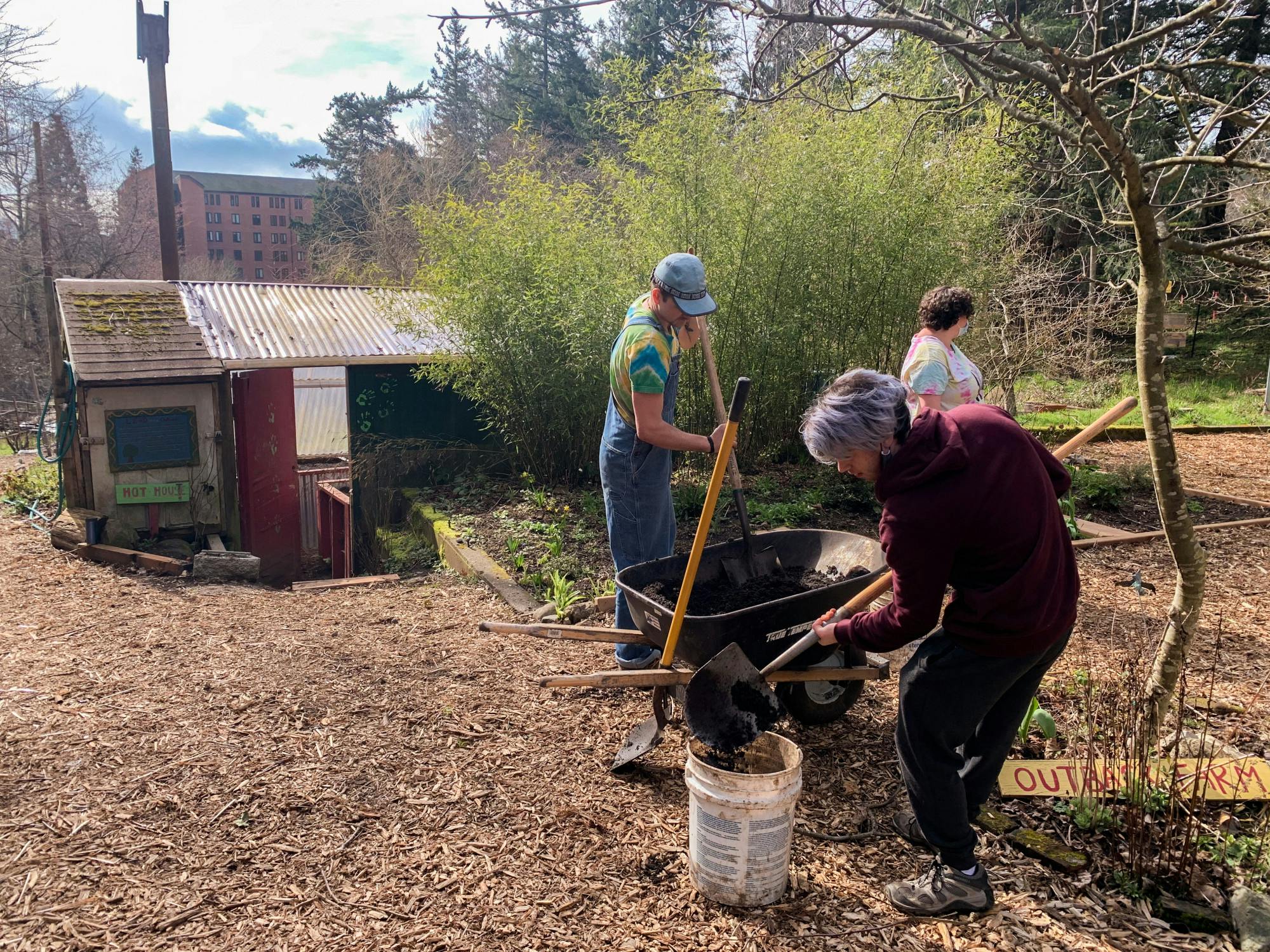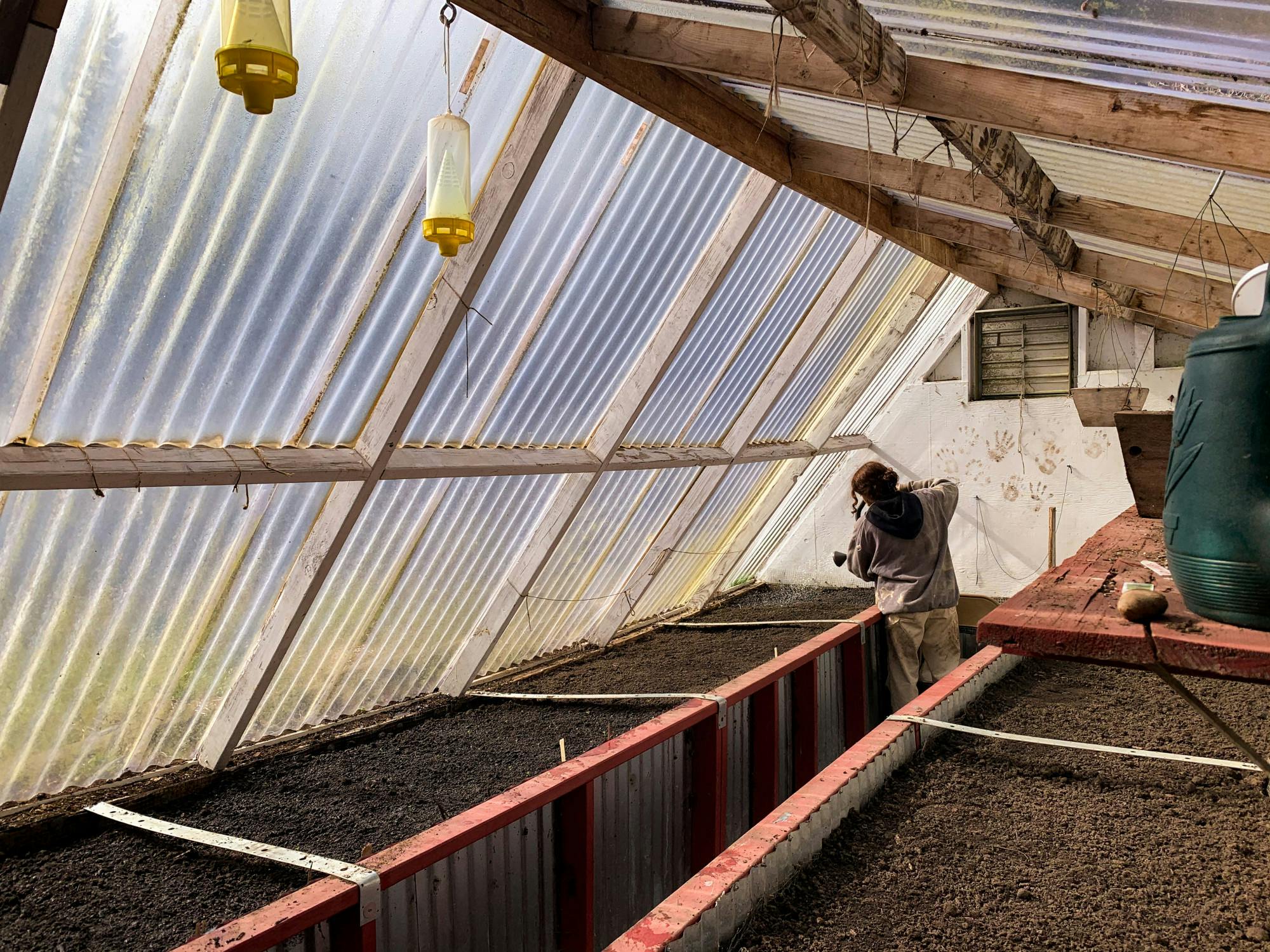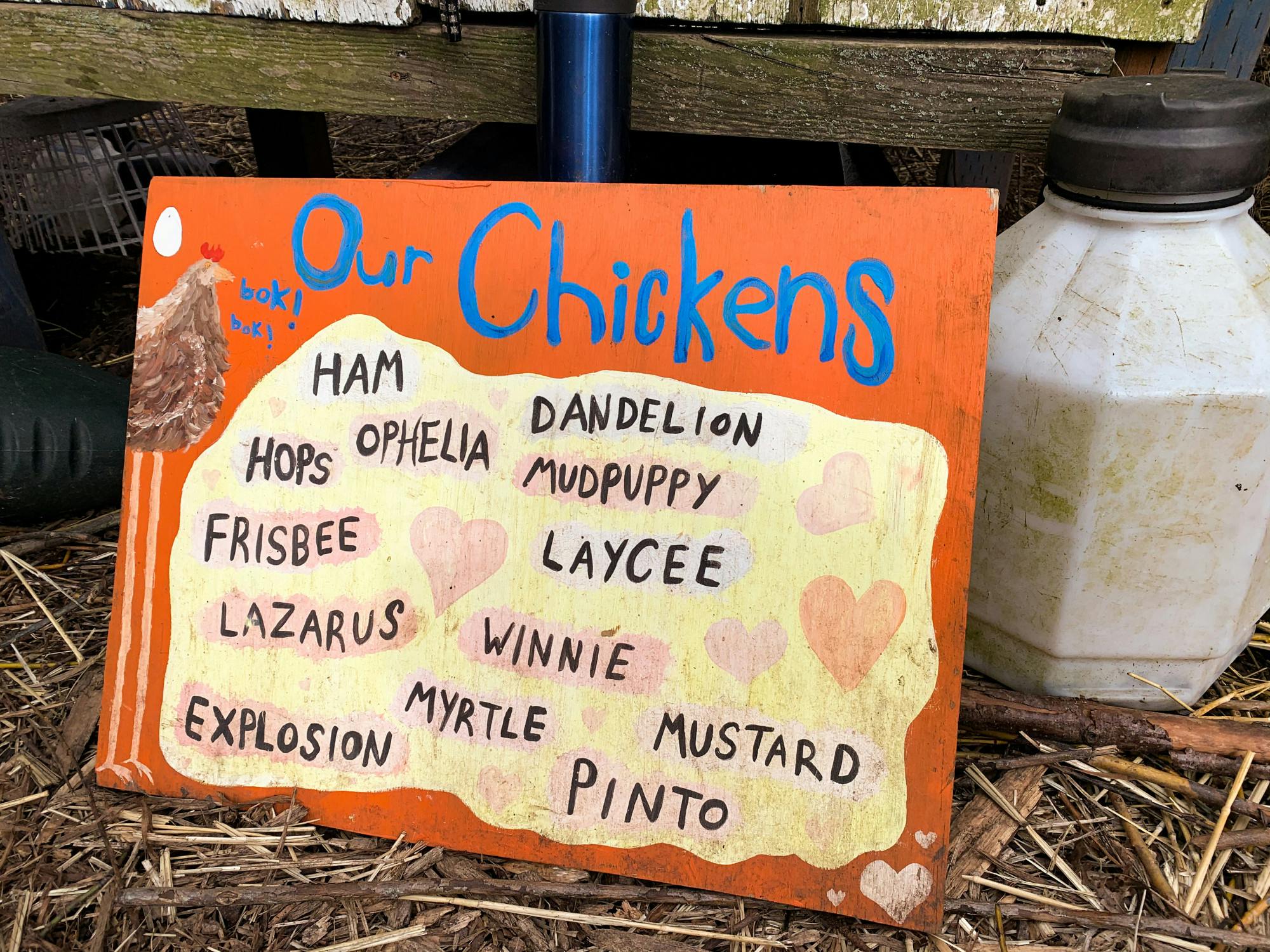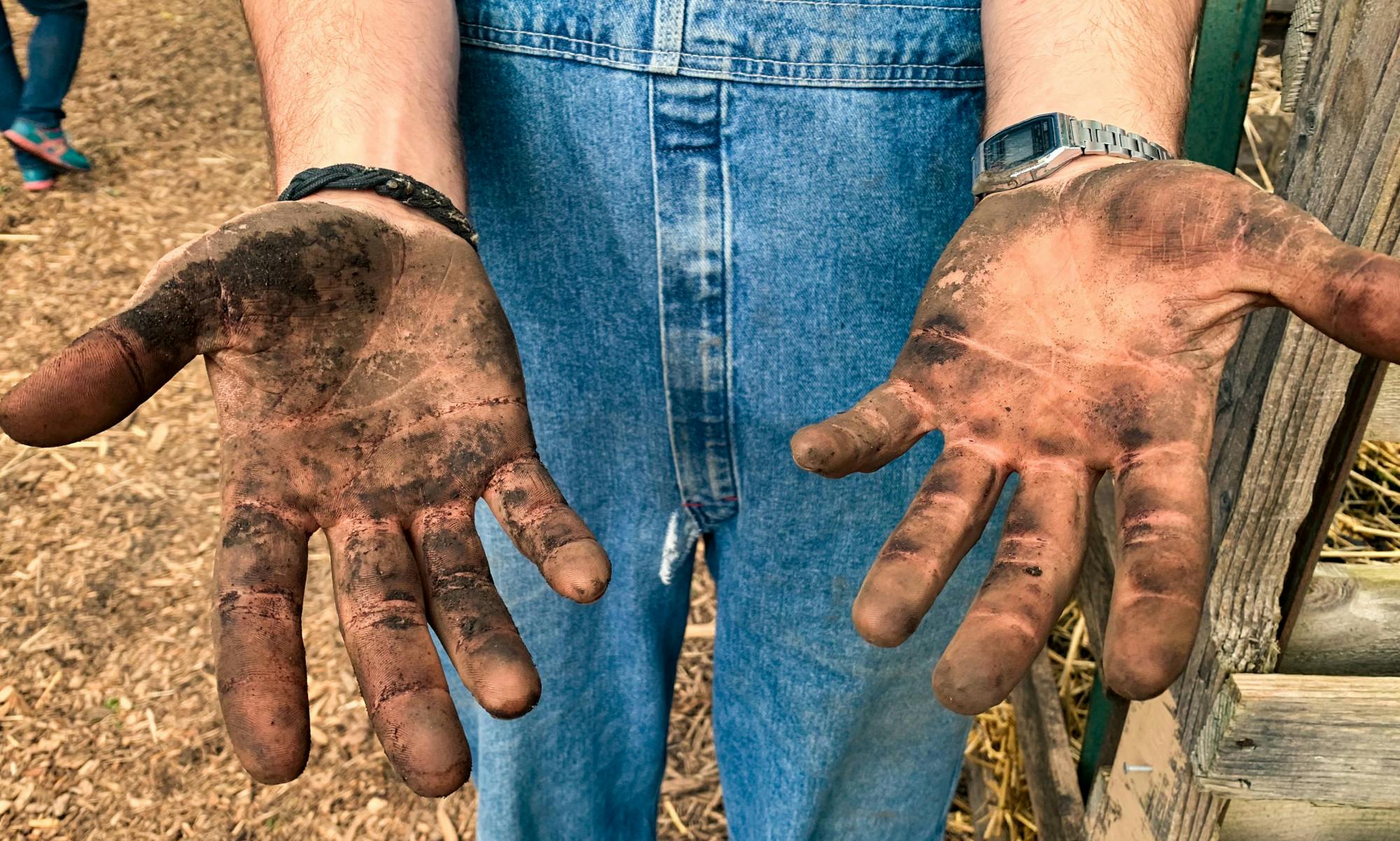As spring approaches, The Outback Farm at Western Washington University looks forward to sunshine and warmer temperatures; however, beautiful weather isn’t all the farm has to celebrate this year. Established in 1972, this year The Outback celebrates its 50th Anniversary with some upcoming workshops, festivities and exciting construction projects on the farm.
The Outback is comprised of many different parts: a greenhouse, hothouse, apiary, chicken coop, community garden, food forest, outdoor classroom and amphitheater. The farm’s team of eight people work hard, and with the help of Western students, run the operation with a deep love for the critters and plants that live there.

Third-year Cam Olsen-Roth, The Outback’s engagement coordinator, has been part of the farm for approximately two years now. Olsen-Roth didn’t have previous experience working on a farm and wasn’t sure about the position when she first started.
“I was really excited, but I was also really nervous,” Olsen-Roth said. “I’m plus sized, and sometimes doing hard physical labor, being on your knees weeding and things like that, can be a little bit difficult. But, when I got to The Outback, I found that I was welcomed and that I was able to work at my own pace.”

Olsen-Roth encourages students to try one of the farm’s workshops which are held once a week during winter and hopefully twice a week during spring. This quarter included a farming contour class and pruning workshop, and the next quarter is promised to bring some fun spring workshop events.
Sustainable food production is another focus at The Outback. The farm’s greenhouse, hot house, plots and garden beds are used to grow food for students and the community. The farm’s hot house in winter quarter is growing bok choy, spinach and chard, while the greenhouse recently planted arugula, spinach, leeks, radishes, chard, beets, carrots and peas.

The Outback also holds free farmers markets, where students who stay in Bellingham during summer can get free produce. Furthermore, the farm’s manager, Terri Kempton, has had her food and power class build a larger Fairhaven food pantry, where students who are in need can access food, sanitary or laundry materials.
The farm’s generosity extends to relationships with programs across campus. Organizations such as the Western Success Scholars or WWU Queer Eco Justice have a couple of plots on the farm, and The Outback plans to give the Native American Student Union a plot of their own as well.
Though this is a hard working farm, there tends to be a lack in funding, leading them to seek out financial resources. Luckily, they recently applied for the Whole Foods City Amazon Grant and won. Some of the money will go toward solar and micro grains, while a larger part of the grant will be used toward the farm’s chickens whose coop has been on the property for about 20 years.

The Outback is home to 13 chickens, or as Sasha Mosier, The Outback’s operations manager and head beekeeper, calls them: little golden retrievers. Mosier has worked with the farm’s chickens for about three years. Their names are Ham, Hops, Frisbee, Lazarus, Explosion, Myrtle, Winnie, Mudpuppy, Dandelion, Ophelia, Mustard and Pinto.
Mosier, who can’t contain her excitement about the new coop, said the hens are very much in need of a new home, recently facing scaly-like-mites in their feet this winter, due to the location of the coop.
The staff at the farm is used to helping the chickens when they face issues like mites, but this year they tried something new to get the community involved. Needing an activity at an upcoming work party and wanting to see a bigger turnout, the farm decided to have a “Chicken Spa Day.” The event was a hit, with about 22 students in attendance.
“The max that I’ve been at was like eight or nine [students],” Olsen-Roth said. “It was super fun to see all these people care about the chickens.”
Although Olsen-Roth said they ran out of productivity with four or five people helping, when there were enough people cleaning the chickens another group would clean out the coop, go do pathwork or practice harvesting. Aside from pampering the chickens, students still seemed to have a good time.

“[The farm is] a super cool space for students to get their hands super dirty and learn about how we can feed and help the planet,” said second-year Stu Johnson on his first day volunteering at The Outback.
Johnson, who studies sustainable agriculture, said he thinks that learning from small-scale agriculture — like The Outback — and feeding communities directly, is crucial to saving the planet.
Students interested in getting involved at The Outback should follow their Instagram for more upcoming events like Chicken Spa Days. The farm also holds a Fall Harvest Jubilee every year. Featuring scones, live music, t-shirt printing, pumpkin painting, a scavenger hunt and some fun animals.
This year on May 21 and 22, The Outback plans to hold a 50th Anniversary celebration. Multiple workshops, work parties, possibly an info fair, singer songwriter competition and lots of food will be coming up in the near future.






